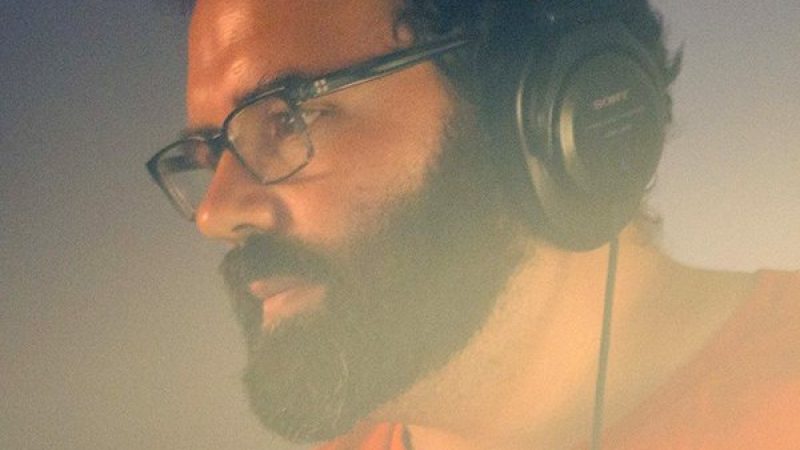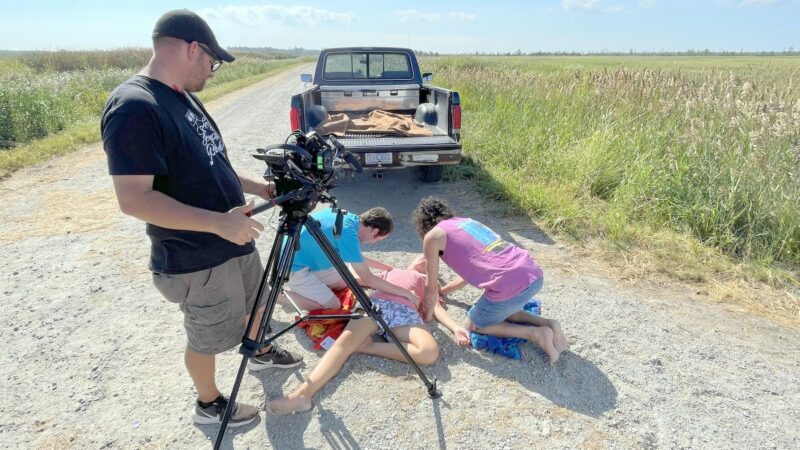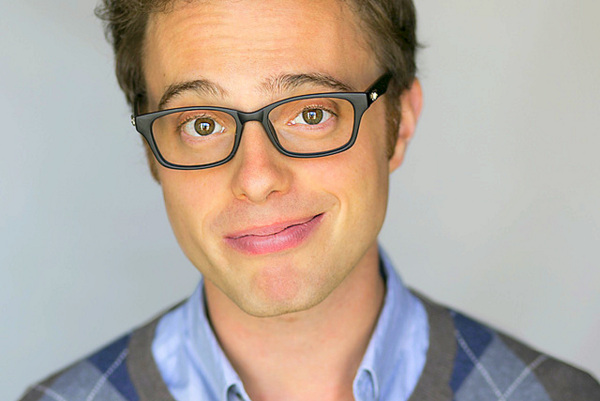
It all started when I auditioned for the 6th grade musical (an original piece). I had never performed before, but I got a nice role. I had SO MUCH FUN being on stage but I still wasn’t too sure about continuing in junior high. My 3rd grade teacher was a big champion for me and insisted I audition for the 7th grade musical — Hello Dolly. I did, got Cornelius, and haven’t looked back since.
#filming a proposal on the #beach! It was so #cold… #actorslife #filmmaker #setlife #love #werk #gay pic.twitter.com/CKHYJZe8Dj
— Robert Stephen Rice (@Robertrice87) August 8, 2015
Did you study acting
My acting study started as more of an apprenticeship. I did show after show after show (mostly musical theater) in junior high/high school. My parents were not at all interested in paying for me to go to college for performing arts, so I pursued a degree at the University of Rochester in Japanese and Business. I was lucky, though, because that school is affiliated with Eastman School of Music, one of the top music schools in the country. So, I was able to continue studying voice on the side.
It wasn’t until a few years after college that I decided to pursue acting professionally, and since then I’ve always been in some sort of scene study, cold reading, or improv class. You have to keep yourself on point!
Robert Rice 2017 Reel from Robert R on Vimeo.
What acting technique do you use
If I had to pick a technique, it would probably be closest to Uta Hagen’s style of bringing yourself to the character and finding the truth of the scene. I’ve tried method acting and other techniques, but they don’t really work for me. I’ve always been an empathetic person, so no matter what a character is dealing with I can typically wrap my head around it and have it make sense. Honestly, I think the best “technique” you can apply as an actor is being a good listener. Most actors get too wrapped up in their own line delivery and they lose the one thing that makes a scene come alive — connecting with your partner truthfully.
What wrong impressions do actors hold about acting
This is a very unpopular opinion among actor types, but I think people think too much about it. If you ask great actors like Ian McKellen, acting is largely imagination, empathy, and LISTENING. That last part is the key ingredient. If any new actor came up to me and asked “what should I study first if I want to be a good actor?” I’d tell them improv. Not to learn how to be funny, but to learn how to listen. If you are able to be in a scene and just be present, you will outperform 98% of actors out there who are way too in their heads. Believe me, I used to be one of them.
Do you take courses to improve your craft
Absolutely! It’s no different than being a singer or an athlete — working your “muscle” regularly is very important. I worked in theater for a long time, and now that I’m focusing a bit more on TV/Film I do a lot of on camera classes. I also take improv regularly with the Groundlings, scene study classes, and cold reading. The irony of being a professional actor is you spend very little time actually acting and most of your time auditioning. The better you get at that, the more you’ll get to do the fun stuff!
What acting books do you read
Respect for Acting and A Challenge For the Actor, both by Uta Hagen. Audition by Michael Shurtleff. Behind the Lines by Jordan Ancel. In addition to acting books, I highly recommend reading about any subject you can think of. The more you know about the world, the better. A fun book I’m working through is An Incomplete Education by Judy Jones and William Wilson.
How do you keep fit as an actor
I’m always in a class, I go to the gym regularly, and I have a life outside of acting. It’s incredibly important to have other things you care about and enjoy doing. Not only will it help you get through the tough times, it will help you perform better at auditions. There’s nothing more exciting to the people behind the table than a confident actor who isn’t desperate for the role.
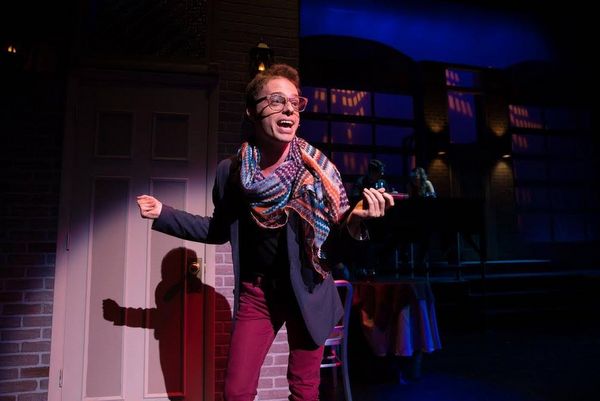
How do you prepare for a role
This is a bit of a tricky question, as it depends on the medium. If it’s for a play or a musical, I work on the songs with a vocal coach and the script with an acting coach. I also use the (generally) 2 week rehearsal process to grow and discover moments. If it’s for film or TV I do all of the work BEFORE the audition. When you book a job in TV or film, it’s because you look right, they like how you did it, and you’re direct-able. This is a pro-tip: Whatever your last take was for the audition, especially if you were redirected into a new choice, recreate that on set. Especially if it’s for TV. If you change everything, they will be furious with you.
Once you move up in the world of TV/Film and start getting bigger roles and have some star power, the rules change a bit. But what the stars discuss in interviews is not the reality for working actors trying to land co-star and guest star roles.
How do you create a character from a script
The first thing I do is look through the scene and see what’s going on. What does my character want? What tactics are they using to get it? What is the obstacle? Be sure to read the stage directions; they often give a lot of information about the situation. If you have a full script, you can read through and see the full arc, but if you only have a scene you have to work with context clues.
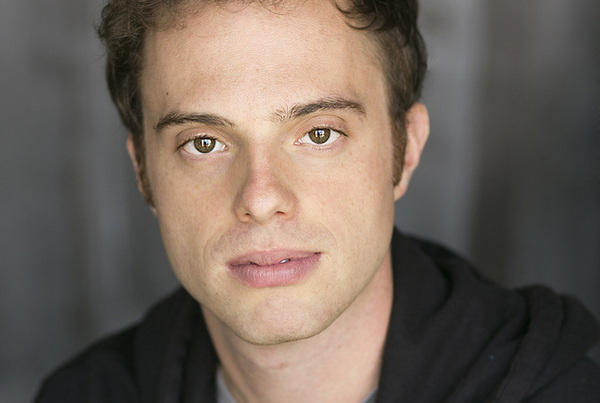
Once I’ve figured that out, I memorize the lines as quickly as possible. The sooner you can get off book, the sooner you can act. Once all of the mechanics are worked out, I just let myself live the scene. I imagine what it would be like to be that person in that situation and go from there. It really helps if you can work with another actor when practicing, just to get used to listening and being present. Let their words affect you. After an hour or so (you don’t want to over-rehearse, or else you risk getting stuck in doing things one way), let it go. It will be firmly in your body by then.
How do you stay fresh on set
This is a bit of a hard question to answer, because I don’t have too much of a problem bouncing in and out of character. If you are on a professional set, you’ll notice that many of the actors joke around and have fun when not on camera, and then snap right back into the scene when shooting. If it’s a particularly dramatic or emotional scene, you can keep to yourself during breaks and try to stay in the mindset of the character. Again, the medium really makes a difference. I find in theater it’s a lot easier to hide from people and just focus on character than in film or TV with huge sets. You have to be adaptable :).
Describe a memorable character you played
I was inappropriately cast as Jerry in Zoo Story when I was 23 years old. I was WAY too young for the role, but the director liked my energy and really felt I could bring it to life. It was the hardest damn thing I had ever done from an acting perspective — he has a huge, dark, emotional journey and basically never shuts up for the entire show. Talk about memorization!
We rehearsed for a little over 2 weeks, and I remember opening night I thought I was gonna poop my pants. But, once we got rolling I fell into it and had one of the best acting experiences of my life. If you haven’t read Zoo Story, it’s a really fascinating 2 man show about life and loneliness. Both roles are fun and meaty for actors!
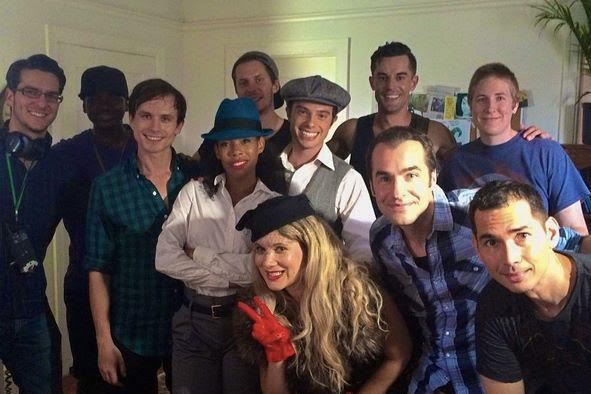
Explain one creative choice you took on set
I did a Hulu commercial and memorized the whole script, as you do. However, the minute I walked onto set, the director said we’re not doing the script and he just wants me to improvise a monologue about falling in love with this woman I was sitting next to. (See, improv experience is useful!) He gave me the exact points he wanted me to touch on, the general vibe of the scene, and then had me go on my way.
This is a prime example of how things never go as you plan and why listening and being adaptable are so darn important. I took in what he said, made note of it, and then had a ball coming up with this fun scenario of how we met and fell in love, all while incorporating every single thing he asked me to do. When we were finished, the whole crew applauded (a rarity) because they had a full day of people not taking direction very well and they loved it.
What do you want most from a director
I like directors who are good at directing actors. Cliched, right? Someone who knows what they want and how to explain it in a clear and concise way so we can quickly take the note and redirect. It’s a really hard skill for a director, and more often than not they struggle to express themselves and ultimately get frustrated with actors for not “getting it.” That’s why actors-turned-directors are great!
What actors do you long to work with
I love, love, love comedy so it would be a dream to work with the likes of Tina Fey, Amy Poehler, Jane Lynch, Melissa McCarthy, Aziz Ansari, Louis C.K. etc… Everything they’re involved with is gold and they seem like such a blast to work with!
Why
These people are at the height of their craft. They’re 100% comfortable in their bodies, they are phenomenal listeners and they just GET comedy to the bone. It takes a lot of skill to do what they do, even though they make it look easy. I feel like working with them would be a dream in terms of growing as a comic actor and learning to just have fun and let go.
What advice would you give to actors
Being a professional actor is so much more than being talented. You have to be smart about the business, easy to work with, and a damn good auditionee (yes, that’s actually the term!). You also have to understand the medium you’re auditioning in. A theater audition is different from a film or TV audition. In addition to staying on top of your craft through classes, you have to keep up to date with the industry. Know who you’re auditioning for and what else they’ve done. If you’re going in for TV, know the tone of the show. You don’t want to be the actor that goes in for Big Bang Theory and does your scene like it’s from Grey’s Anatomy. They will remember you, but not for good reasons. Genre, style and tone matter greatly.
Overall, though, know that being a professional actor isn’t the be all end all of acting. It’s one path. No matter how you find your creative fulfillment, it’s valid. Enjoy it :).
Cute pic from the shoot today! #actorslife #setlife #love #comedy pic.twitter.com/x5iLhHNBfd
— Robert Stephen Rice (@Robertrice87) March 31, 2016
Briefly write about your career
After struggling to find a job in my major (Japanese and Marketing) out of college, I fell into a job at a children’s theater in Albany, NY, where I’m from. I worked there for 2 years as an actor, and then decided to take the leap and move to NYC for theater. I worked in NYC and all over the country for around 5 years in various shows like The 39 Steps, First Date, The Wizard of Oz, etc… In April of 2015, I moved to LA and started hitting the ground running in TV/Film. Since then, I’ve done countless short films, web series, and even a few commercials!
My partner and I also are in the process of creating our own original content. Our company, Good Fight Productions, exclusively produces quality scripted content with a major focus on diversity. The pilot for Al Malone, Private Eye, our noir series, will be released soon :).
Website | Facebook | Twitter | Instagram | SoundCloud | LinkedIn
INTERVIEWS
In Conversation with Michael Oblowitz Director of Confidential Informant
Confidential Informant stars Mel Gibson, Dominic Purcell, and Kate Bosworth

